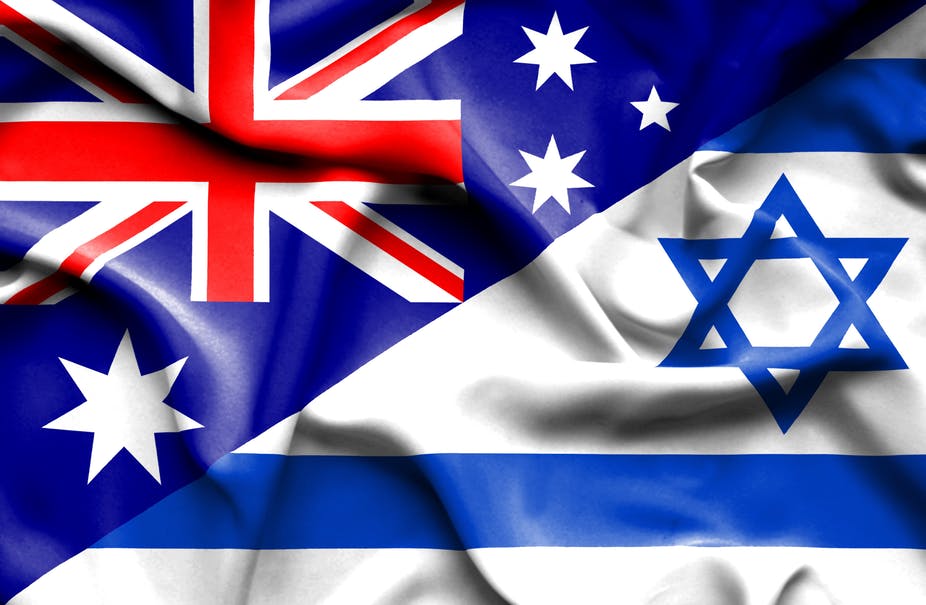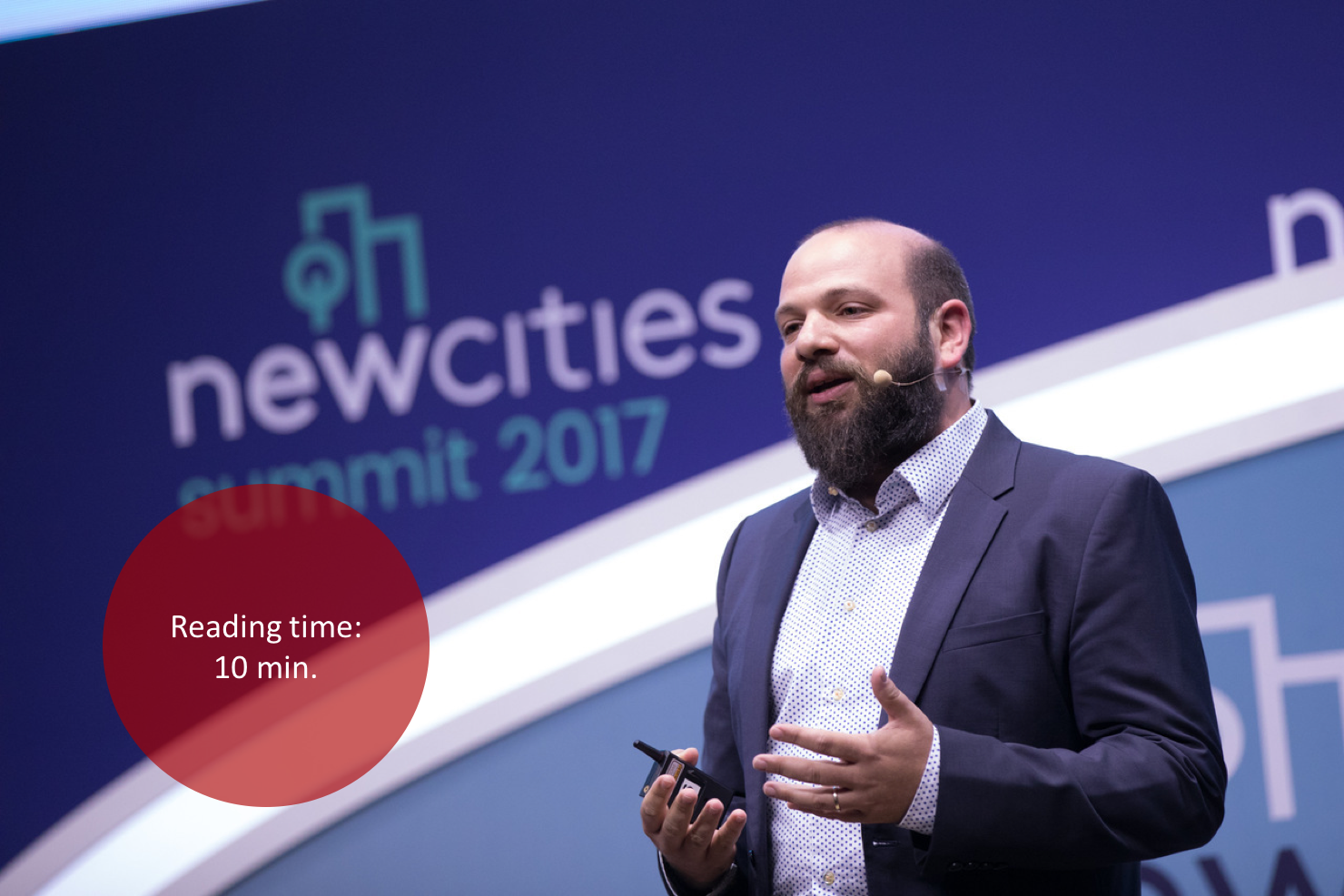Crisis Management in the Pandemic
18.03.2021

The COVID-19 crisis caught all of us by surprise. Who could have imagined a global pandemic of such proportions? Weren't pandemics a problem for backwards, third-world countries, out of sight and out of mind? Who cares about plagues or hunger or even a large war affecting Africa? Who invests resources there anyway? "It's not ours, it's far away," is what most people and most nations say.
This pandemic crashed into our lives and we were taken completely by surprise. The disease has spread around the world like wildfire, skipping no nation in its rampage. All of us are exposed to the danger it represents.
New York, London, Paris, Rome, Berlin, Tel Aviv – all have woken up to a new era of uncertainty with no end in sight. The year 2020 saw entire nations under quarantine. We've all been seized by panic. At times, governments have made bizarre decisions without any compelling rationale. How will these decisions affect the marketplace? The economy? And the people? Many are experiencing a gnawing existential anxiety.
Chaotic times indeed. But despite – or maybe because of – the general air of distress, I've decided to tell you about Brooks-Keret and how it managed this crisis.
Let's go back in time. Two years ago, a friend/investor called me up to ask my opinion of a company he was considering investing in. The company had developed a smart technology for automated bookkeeping and accounting.
I checked the company out. My impression was that its developers had something really solid in hand. I got back to my friend and told him I thought this is the future of accounting and that he should go ahead and invest. Ultimately, he chose not to do so. We, on the other hand, became the company's design partners. For two years, my dear colleagues Oren Brooks and Josh Jackson assumed responsibility for the project and pushed the idea forward on every front, never mind the hurdles and pitfalls. The company's name? DOKKA.
At the end of 2019, during our strategic planning session, we made a strategic decision that, as of 2020, our company would go paperless and become green. At that point, we had no idea how significant the timing would turn out to be. J
Then came March 2020.
In no time at all, we called an executive meeting, understanding that something big, something important, something beyond anything we'd ever experienced before was now at our doorstep. It was obvious to us that the marketplace and we within it were about to enter a crisis with no end point in sight.
At that meeting, talk of quarantines and lockdowns was already in the air. Few were the executives who really grasped the magnitude of the looming crisis, yet nonetheless we made several important decisions:
First off, we agreed that we were all in this together. All of us would push the company ahead, even when things got tough and it wasn't clear what surprises tomorrow would bring. Not one employee would be laid off. We, the executives, announced that employee salaries would not be affected before our profits hit zero. In such a scenario, all salaries would be reduced proportionately. Fortunately, it never came to pass. On the contrary, we ended up distributing handsome bonuses to employees in appreciation of their efforts and results despite the pandemic.
In addition, I suggested we try having all employees work from home in two shifts: half would work from home one day, the other half the next. I wanted to test the technical capacity of the systems and see if the employees could really work remotely. The executives also decided that every employee would have a full work station at home; if they didn't have the required equipment, we would supply it.
Another important decision we made was the immediate, full-scale transition of all clients to work with DOKKA, at no cost. The significance of such a move lay in the fact all client documents and materials were scanned and sent to us. They were then automatically archived and we were able to execute the work remotely and efficiently.
Before we had a chance to experience working from home, the first lockdown went into effect. Fortunately, the transition was very smooth. Brooks-Keret continued to serve its clients remotely in a professionally, reliably, and thoroughly.
Not only were our clients not negatively impacted, they received better service than ever before.
The challenge inherent in remote management is not simple. How does one maintain employee motivation and efficiency? How does one maintain a sense of corporate belonging? Professionalism? Mutual support and solidarity? These are only some of the management questions and issues we haven't fully addressed yet.
How to keep costs down?
How to recruit new employees?
And new clients?
What will happen to the high-tech sector and startups?
What will happen to capital raising?
And so on...
I am happy to report that, in some way, COVID-19 was very good for us.
The year 2020 is now over. In some aspects, it will be remembered as one of the company's best years ever. We learned that it's possible to work and continue to provide service from home no less efficiently or less well than before. The insight that a piece of real estate is not an absolute necessity allowed us to make another decision, namely to close the Tel Aviv branch. There was no need for all this space, and the closing cut costs.
Were I to try to summarize the COVID-19 year to date from our company's perspective and the reasons the company continued to develop and gain strength despite everything, I'd make the following points:
· The employees and the managers are all on board.
· We retained all our employees in every way, and provided them with a sense of security and remote working conditions.
· We made quick, radical decisions that were implemented across the board in time.
· We never stopped developing technologically or investing in new efficiency-enhancing products regardless of the pandemic (e.g., our relationship with DOKKA).
· We examined the structure of our expenses and savings wherever possible, while adapting to the new reality (e.g., closing the branch in Tel Aviv).
· In terms of collections, we kept a finger on the pulse more than ever before.
· Zoom meetings turned out to be no less effective, plus they're a time-saver (travel, parking, and so on).
· We maintained ongoing communication with clients and remained attentive to their needs and challenges and really understanding them.
This allowed our company to grow and develop, and end the year on a business, management, and social high.
This pandemic crashed into our lives and we were taken completely by surprise. The disease has spread around the world like wildfire, skipping no nation in its rampage. All of us are exposed to the danger it represents.
New York, London, Paris, Rome, Berlin, Tel Aviv – all have woken up to a new era of uncertainty with no end in sight. The year 2020 saw entire nations under quarantine. We've all been seized by panic. At times, governments have made bizarre decisions without any compelling rationale. How will these decisions affect the marketplace? The economy? And the people? Many are experiencing a gnawing existential anxiety.
Chaotic times indeed. But despite – or maybe because of – the general air of distress, I've decided to tell you about Brooks-Keret and how it managed this crisis.
Let's go back in time. Two years ago, a friend/investor called me up to ask my opinion of a company he was considering investing in. The company had developed a smart technology for automated bookkeeping and accounting.
I checked the company out. My impression was that its developers had something really solid in hand. I got back to my friend and told him I thought this is the future of accounting and that he should go ahead and invest. Ultimately, he chose not to do so. We, on the other hand, became the company's design partners. For two years, my dear colleagues Oren Brooks and Josh Jackson assumed responsibility for the project and pushed the idea forward on every front, never mind the hurdles and pitfalls. The company's name? DOKKA.
At the end of 2019, during our strategic planning session, we made a strategic decision that, as of 2020, our company would go paperless and become green. At that point, we had no idea how significant the timing would turn out to be. J
Then came March 2020.
In no time at all, we called an executive meeting, understanding that something big, something important, something beyond anything we'd ever experienced before was now at our doorstep. It was obvious to us that the marketplace and we within it were about to enter a crisis with no end point in sight.
At that meeting, talk of quarantines and lockdowns was already in the air. Few were the executives who really grasped the magnitude of the looming crisis, yet nonetheless we made several important decisions:
First off, we agreed that we were all in this together. All of us would push the company ahead, even when things got tough and it wasn't clear what surprises tomorrow would bring. Not one employee would be laid off. We, the executives, announced that employee salaries would not be affected before our profits hit zero. In such a scenario, all salaries would be reduced proportionately. Fortunately, it never came to pass. On the contrary, we ended up distributing handsome bonuses to employees in appreciation of their efforts and results despite the pandemic.
In addition, I suggested we try having all employees work from home in two shifts: half would work from home one day, the other half the next. I wanted to test the technical capacity of the systems and see if the employees could really work remotely. The executives also decided that every employee would have a full work station at home; if they didn't have the required equipment, we would supply it.
Another important decision we made was the immediate, full-scale transition of all clients to work with DOKKA, at no cost. The significance of such a move lay in the fact all client documents and materials were scanned and sent to us. They were then automatically archived and we were able to execute the work remotely and efficiently.
Before we had a chance to experience working from home, the first lockdown went into effect. Fortunately, the transition was very smooth. Brooks-Keret continued to serve its clients remotely in a professionally, reliably, and thoroughly.
Not only were our clients not negatively impacted, they received better service than ever before.
The challenge inherent in remote management is not simple. How does one maintain employee motivation and efficiency? How does one maintain a sense of corporate belonging? Professionalism? Mutual support and solidarity? These are only some of the management questions and issues we haven't fully addressed yet.
How to keep costs down?
How to recruit new employees?
And new clients?
What will happen to the high-tech sector and startups?
What will happen to capital raising?
And so on...
I am happy to report that, in some way, COVID-19 was very good for us.
The year 2020 is now over. In some aspects, it will be remembered as one of the company's best years ever. We learned that it's possible to work and continue to provide service from home no less efficiently or less well than before. The insight that a piece of real estate is not an absolute necessity allowed us to make another decision, namely to close the Tel Aviv branch. There was no need for all this space, and the closing cut costs.
Were I to try to summarize the COVID-19 year to date from our company's perspective and the reasons the company continued to develop and gain strength despite everything, I'd make the following points:
· The employees and the managers are all on board.
· We retained all our employees in every way, and provided them with a sense of security and remote working conditions.
· We made quick, radical decisions that were implemented across the board in time.
· We never stopped developing technologically or investing in new efficiency-enhancing products regardless of the pandemic (e.g., our relationship with DOKKA).
· We examined the structure of our expenses and savings wherever possible, while adapting to the new reality (e.g., closing the branch in Tel Aviv).
· In terms of collections, we kept a finger on the pulse more than ever before.
· Zoom meetings turned out to be no less effective, plus they're a time-saver (travel, parking, and so on).
· We maintained ongoing communication with clients and remained attentive to their needs and challenges and really understanding them.
This allowed our company to grow and develop, and end the year on a business, management, and social high.











